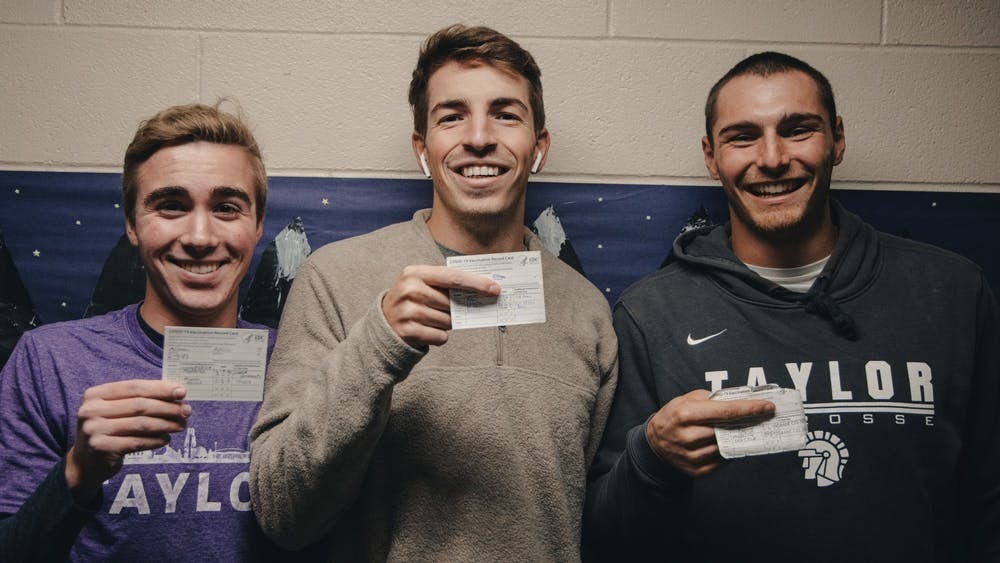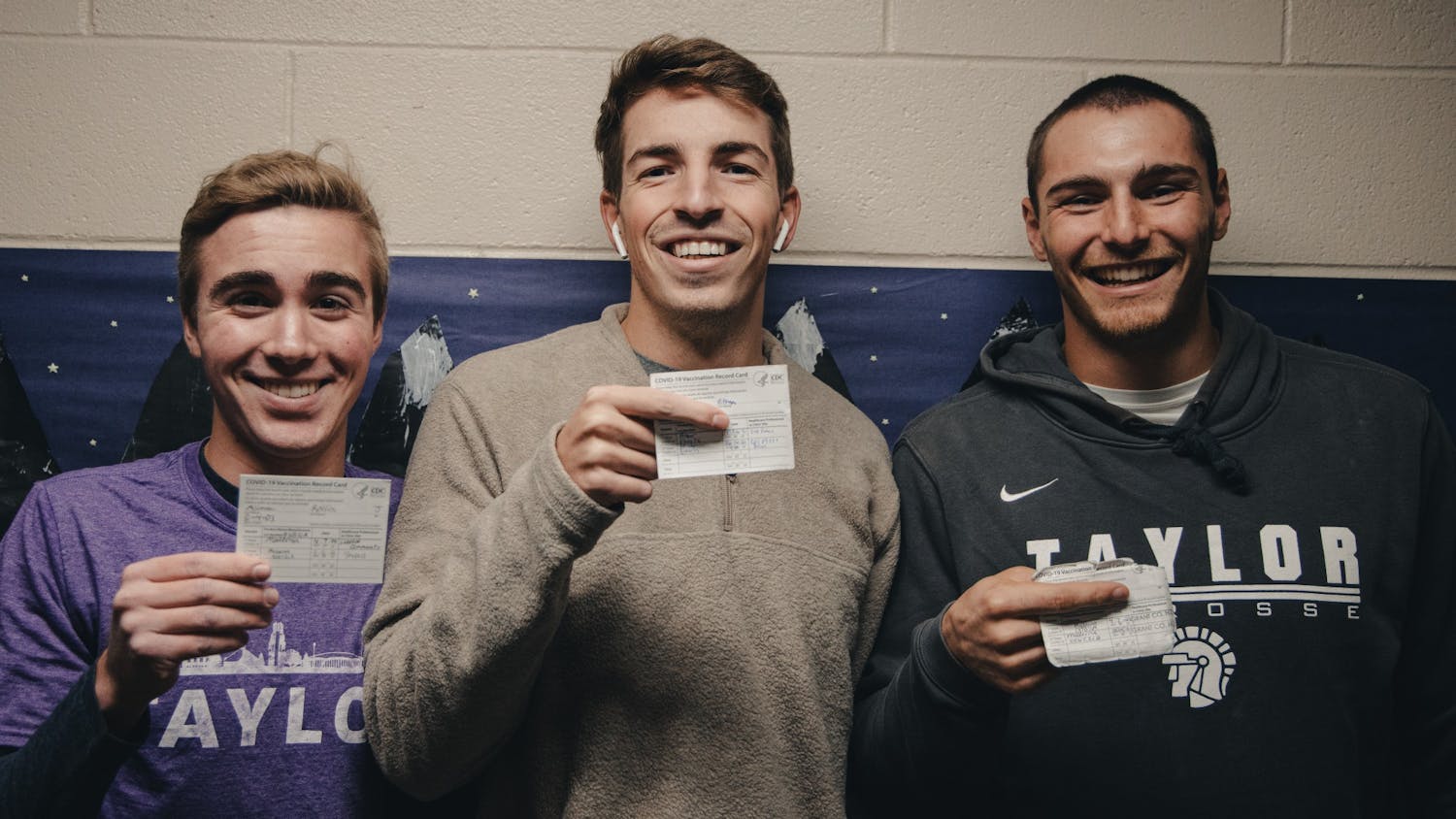On Nov. 5, The Occupational Safety and Health Administration (OSHA) issued an Emergency Temporary Standard (ETS) that requires private employers with more than 100 employees — including Taylor University — to adopt a policy related to COVID-19 vaccination.
Generally, the ETS requires employers to choose one of two policy options.
The first policy requires all employees to be fully vaccinated. The second allows employees to choose to be fully vaccinated or to wear a mask and test once a week.
Indiana, however, established their own state-administered OSHA plan. Because of this, Indiana must either adopt the ETS or adopt a standard that is at least as effective as the OSHA plan could be, according to a recent email to Taylor employees.
“(The Indiana Chamber) remains opposed to the new state vaccine mandate bill but are hopeful for a positive resolution (through the House Bill 1001),” The Chamber said in a bill fact sheet on their website. “House Bill 1001 could restrict businesses’ ability to require the COVID-19 vaccine for employees, if they choose to do so. Much of this legislation is extremely detrimental to an employer’s ability to establish a safe workplace and sets a dangerous precedent.”
This bill allows for private businesses that have COVID-19 vaccine mandates to grant employees exemptions for medical or religious reasons.
Additionally, employers would be required to give employees the choice to test weekly instead of vaccination and provide exemptions for employees who have a natural immunity from previously contracting COVID-19.
The author of the bill, Rep. Matt Lehman, hopes to provide a balance for the rights of the employees and those of the employer.
“This bill needs to be about protecting Hoosier workers,” Lehman said on Jan. 18 at the Indiana House meeting. “It’s not about the vaccines. It’s not about the effectiveness. It’s about the people who are affected.”
Indiana’s COVID-19 numbers peaked Jan. 22 with 12,577 new cases that day. Since then, there has been a steady decrease in cases, with the most recent report of 3,082 total cases on Feb. 7.
In their Jan. 11 email update to the faculty, the office of Human Resources said Taylor plans to follow Indiana’s guidance for what to do next. The only previous communication to employees included the information that the OSHA mandate had been denied by the Supreme Court.
In the meantime, all employees are encouraged to take action to prevent becoming infected with COVID-19 to minimize the risk of transmission.
Taylor’s COVID-19 cases currently remain low going into this spring semester. In an email update on Feb. 10, seven students and four faculty members were in active isolation for testing positive. 21 students and two faculty member were in quarantine after showing symptoms and/or awaiting a test result.
“Infectious numbers for COVID-19 did increase around Christmas and were higher initially on campus during January,” Ron Sutherland, special assistant to the president, said. “However, they have fallen lower over the last two weeks.”
Even with low numbers, some students have expressed concerns regarding how COVID-19 is being handled on campus.
Senior Sam Ranger voiced some of these concerns, looking at both Indiana’s numbers and Taylor’s response. While he mentioned that some things are out of Taylor’s control (i.e. vaccination mandates), Ranger believes there are some topics that could be better handled.
“We have no mandatory reporting which I think is a terrible decision,” Ranger said. “Mandatory reporting should be there because we are getting these emails from PeRT but they do not contain accurate information because people aren’t necessarily reporting when they get COVID.”
Additionally, Ranger said that some students have mentioned worries about a lack of a mask mandate on campus and also feel that information from PeRT could be better communicated with the student body.
Sutherland speaks to this, recognizing the opposition that can be seen throughout students and employees on campus.
“Dealing with the various perspectives on COVID is a challenging task,” Sutherland said. “We have some students and employees who desire more regulations and we have other students and employees who desire lesser restrictions. We try to follow guidance when provided and also try to make good judgments when the answer is not as clear.”
PeRT will continue to closely monitor the number of cases on campus and in the surrounding community.
Any questions regarding a positive COVID-19 test or if COVID-19 symptoms are being experienced, please contact the COVID-19 Hotline at covidhotline@taylor.edu or (765) 997-8610.





